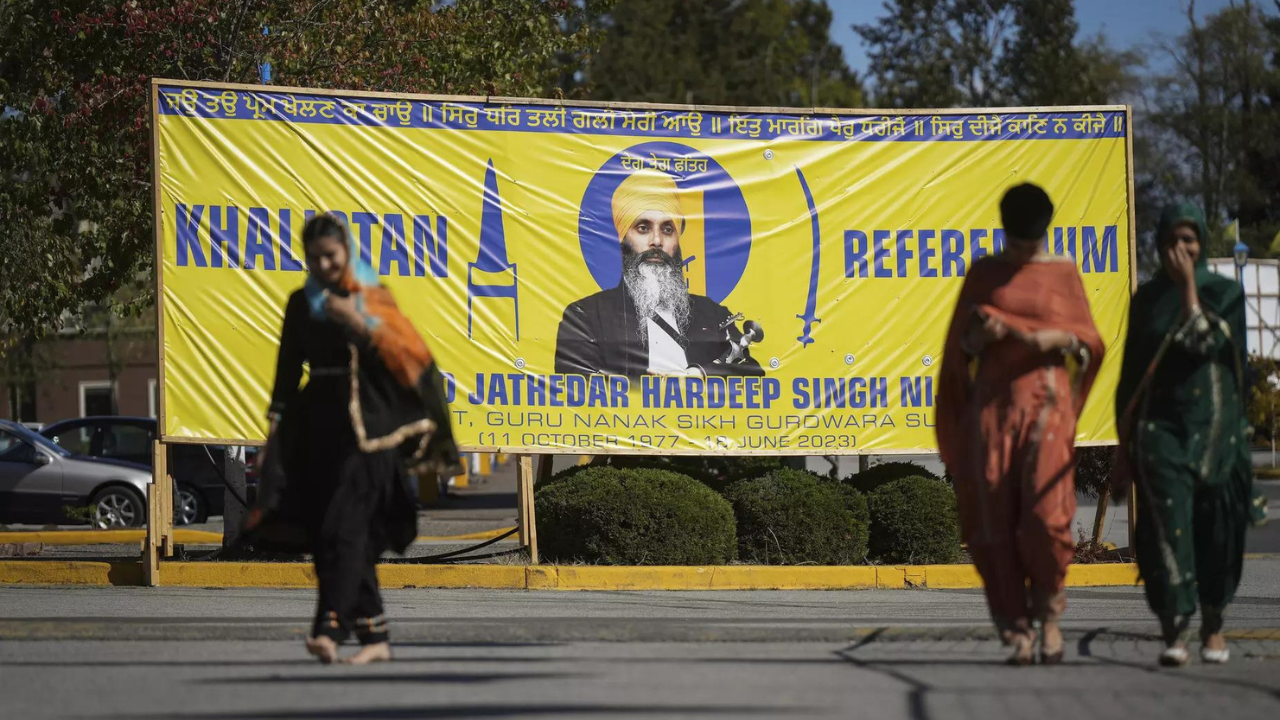[ad_1]
NEW DELHI: Dismissing the claims made earlier by the Canadian government, David Eby, premier of the province of British Columbia, said at a press conference on Friday that the information provided to him by the Prime Minister Justin Trudeau-led federal government regarding India’s involvement in Khalistani terrorist Hardeep Singh Nijjar’s assassination was “an open source information” that was available on the internet.
The development has raised serious questions about the so called intelligence which Trudeau has claimed, leading to a stand-off between the two countries. The video of the British Columbian premier has gone viral on social media.
Eby expressed strong suspicion that the federal government led by Trudeau was “holding back information that could help the province protect its residents with connections to India from foreign interference”. Eby also said that public safety minister Dominic LeBlanc had talked about Ottawa’s intention to provide necessary details for the safety of the residents of the province.
Trudeau’s allegation of “credible evidence” on India’s “potential link” to the killing of Nijjar was supposedly based on “human and signals” intelligence about communications involving India’s diplomatic personnel in that country.
While India did not respond to the allegations, sources in the intelligence community said the claim deserved a deeper investigation to ascertain if unauthorised equipment were used by the local law enforcement to put officials of the Indian high commission under illegal surveillance.
The development, coupled with the disclosure of Nijjar’s family that the terrorist used to meet with Canadian security intelligence service officers every week, has added deepened the mystery.
Officials, however, maintained as tapping the mobile phones of diplomats would be against the Vienna Convention, advanced surveillance equipment like ‘off the air’ or devices like cell-site simulators and IMSI Catchers may have been used to tap in on the conversations, if at all.
The development has raised serious questions about the so called intelligence which Trudeau has claimed, leading to a stand-off between the two countries. The video of the British Columbian premier has gone viral on social media.
Eby expressed strong suspicion that the federal government led by Trudeau was “holding back information that could help the province protect its residents with connections to India from foreign interference”. Eby also said that public safety minister Dominic LeBlanc had talked about Ottawa’s intention to provide necessary details for the safety of the residents of the province.
Trudeau’s allegation of “credible evidence” on India’s “potential link” to the killing of Nijjar was supposedly based on “human and signals” intelligence about communications involving India’s diplomatic personnel in that country.
While India did not respond to the allegations, sources in the intelligence community said the claim deserved a deeper investigation to ascertain if unauthorised equipment were used by the local law enforcement to put officials of the Indian high commission under illegal surveillance.
The development, coupled with the disclosure of Nijjar’s family that the terrorist used to meet with Canadian security intelligence service officers every week, has added deepened the mystery.
Officials, however, maintained as tapping the mobile phones of diplomats would be against the Vienna Convention, advanced surveillance equipment like ‘off the air’ or devices like cell-site simulators and IMSI Catchers may have been used to tap in on the conversations, if at all.
[ad_2]
Source link






Join The Discussion